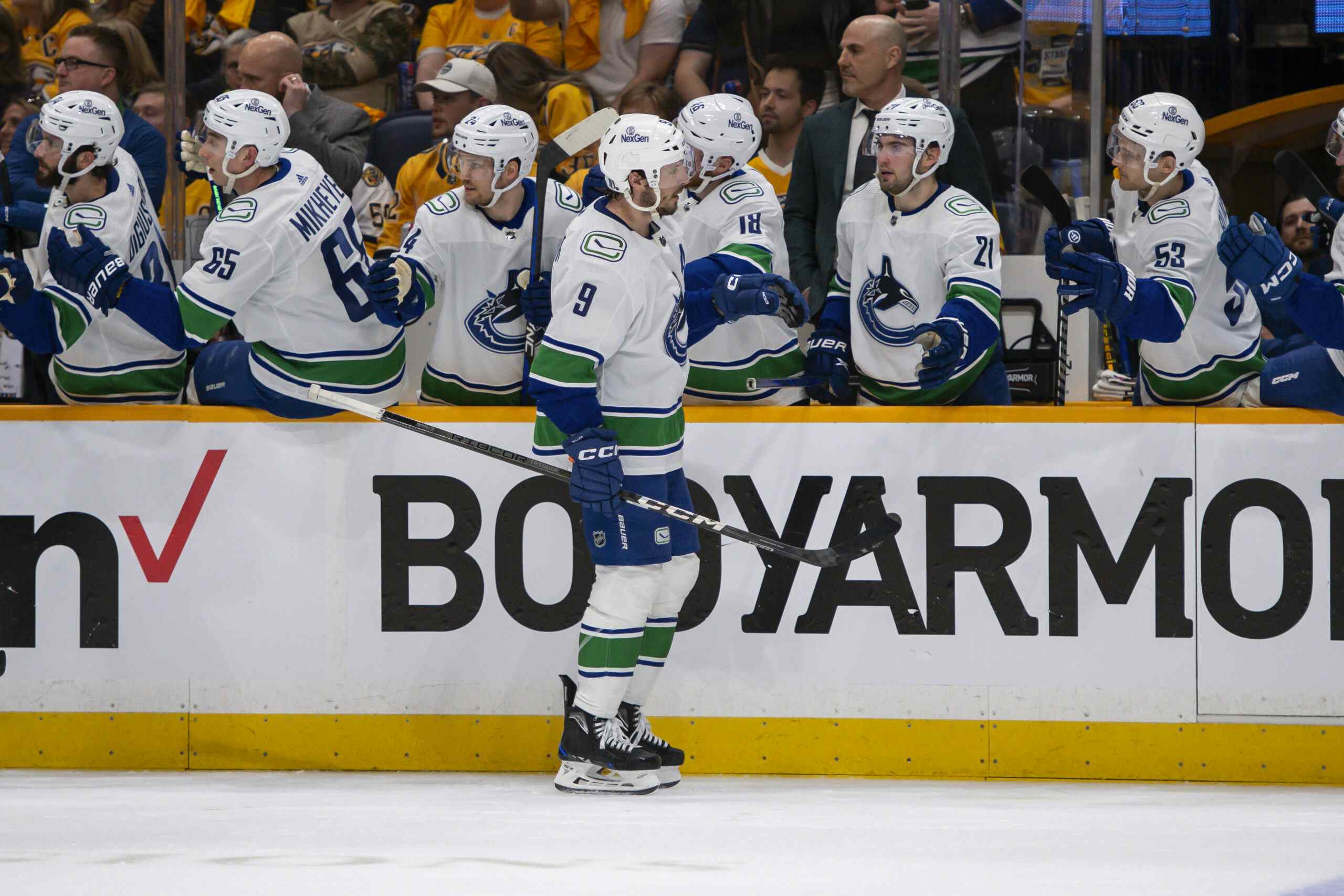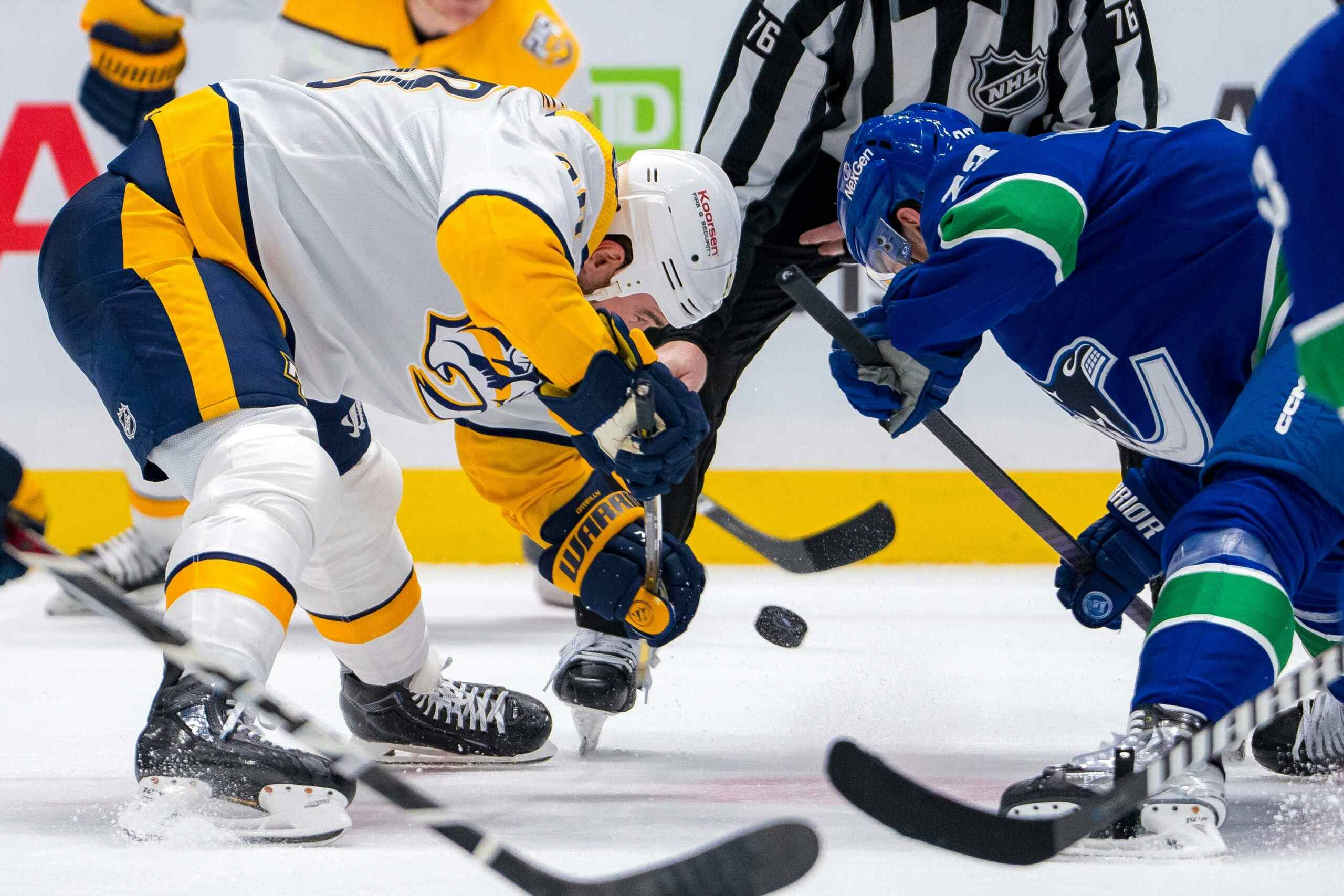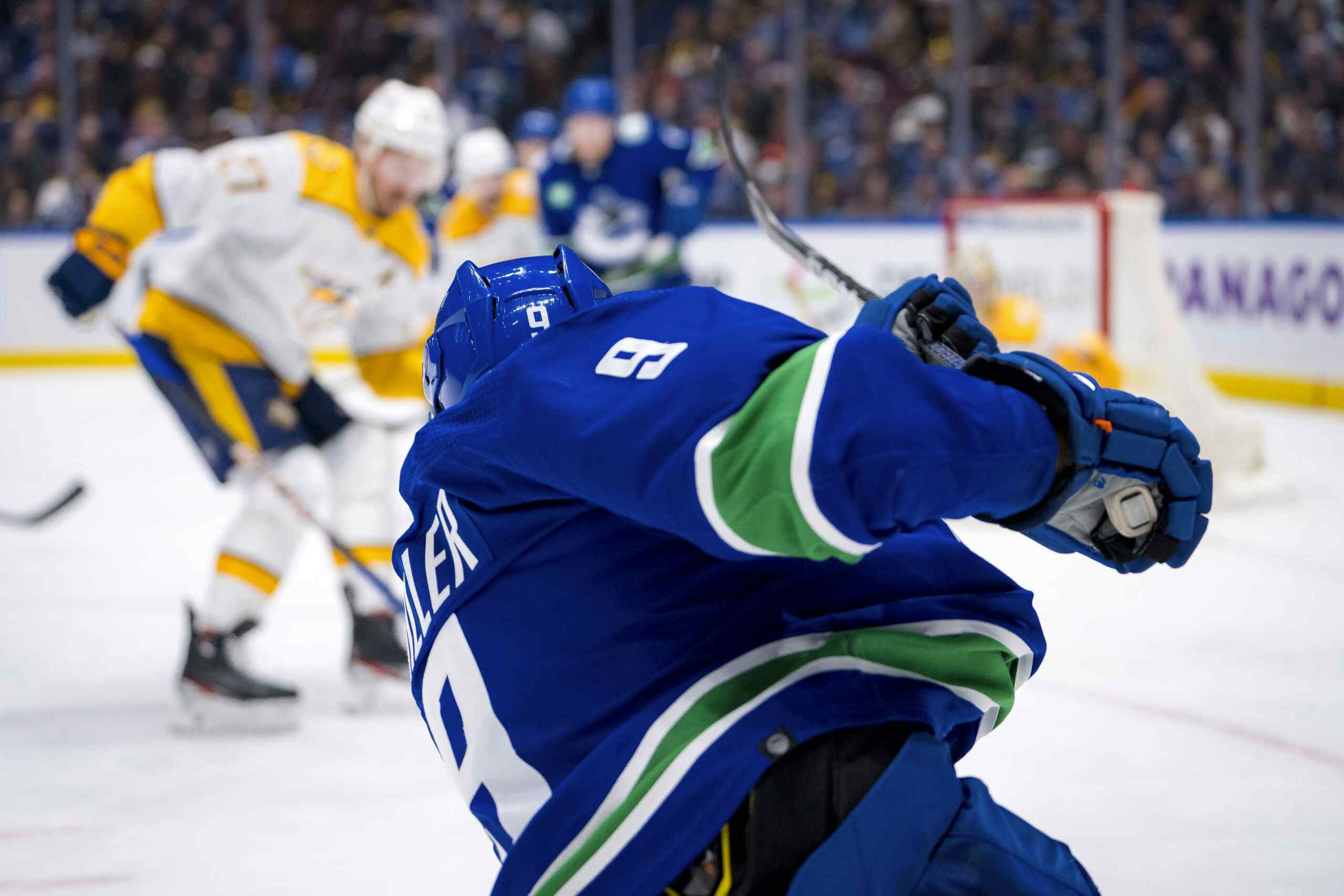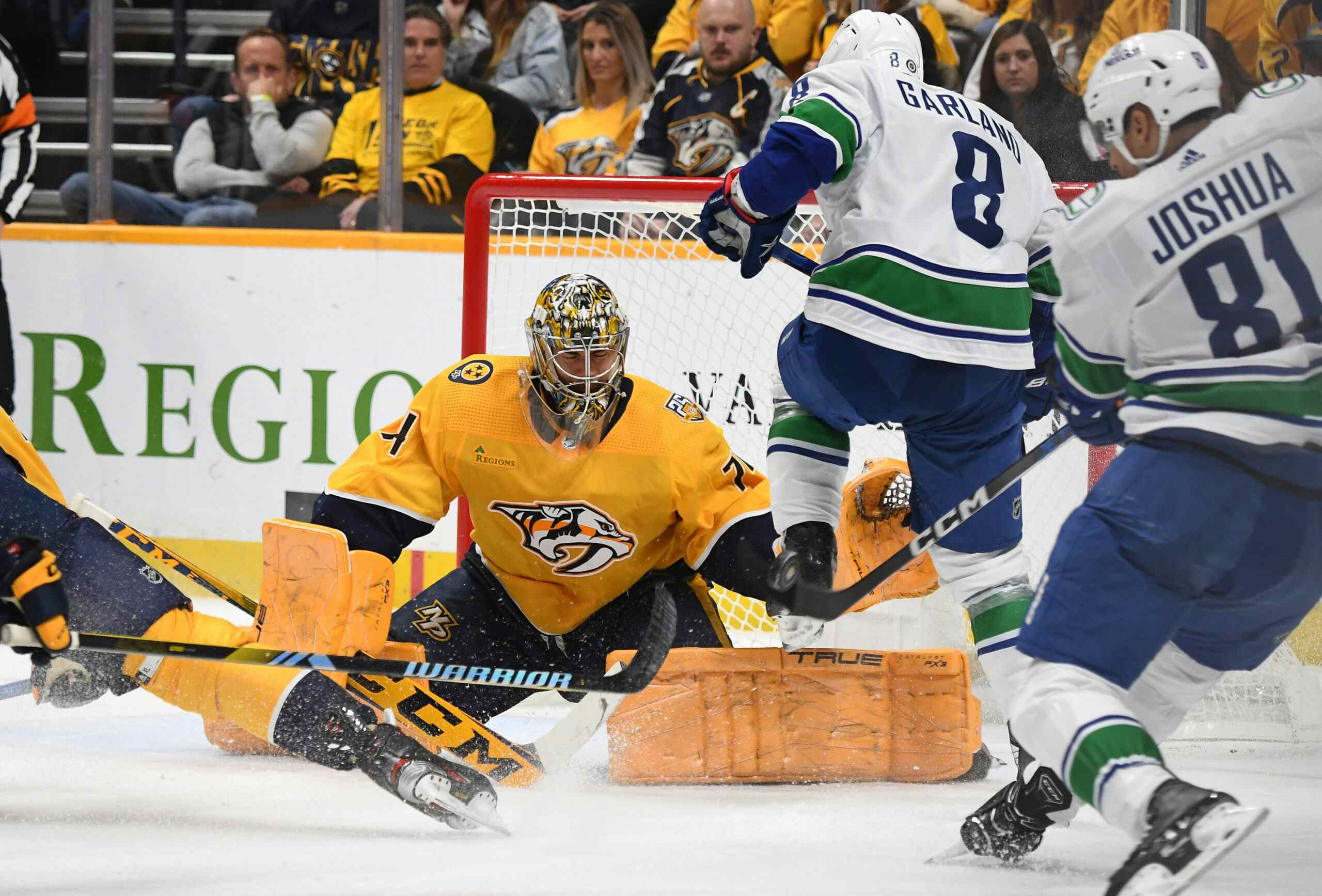How will the Mike Gillis era be remembered?
I come to bury Mike Gillis; not to mourn him.
On Tuesday afternoon, after a day of dizzying rumors – a management shake-up, Trevor Linden in as President? – the Vancouver Canucks pulled the plug on the “Mike Gillis era”. Gillis had become a controversial figure in Vancouver, as underscored by Monday night’s “Fire Gillis!” chant at Rogers arena, owing almost entirely to his mixed managerial record. While there are the obvious successes to point to: six seasons, five playoff appearances, the NHL’s fifth best record during that span, two President’s Trophies, and one Stanley Cup Finals appearance; there are also the obvious blemishes.
The sordid way the goaltending situation played out was an unmitigated mess, a fireable offense all on its own. It should be noted that Gillis’ bets on the trade market were also generally poor (Christian Ehrhoff the major exception), and Gillis drafted players combined to appear in a paltry 54 NHL games this season for the Canucks. Even worse, you couldn’t reasonably describe any of those Gillis draftees (Yann Sauve, Nicklas Jensen, Jordan Schroeder, Frank Corrado) as obvious core pieces.
Firing Gillis is a rupture for this organization, an epochal termination. Though the age was tinged with a perma-film of sweaty arrogance and will always be associated with the 2010-11 team blowing a flat in game seven and the riot that followed, the age of Gillis as Canucks general manager was generally a very successful one for the organization.
Read on past the jump.
It seems quaint now, but towards the end of the 2010-11 season I remember one meaningless milestone meant a lot to me as a Canucks fan. Vancouver had all but sown up home-ice advantage throughout the postseason by this point, but still, I cared a lot about that team winning 50 games. No team in the franchise’s mostly depressing, doormat history had ever reached that mark before 2010-11, and for me it was a symbol of the organization’s perpetual standing as a steaming mediocrity.
Gillis’ Canucks teams were never described as mediocre. Loathsome? Sure. Soft front runners? Fine. Spectacular playoff chokers? If you must. But they were at least worth watching, at least worth having an opinion on. There’s only, like, five pre-Gillis Canucks teams capable of hopping over even that low, low bar (’82, ’92, ’94, ’03, ’04).
Even this most recent season, the Canucks weren’t mediocre. Rubbish on the ice, outrageously dysfunctional off of it; if Mike Gillis’ Canucks weren’t going to deliver wins, they were at least going to treat us to a telemundo quality soap opera.
It’s fitting that, as news of the dismissal spread, some of the now former Canucks general manager’s usual critics commented on the rich inheritance Gillis had received upon taking the Vancouver job, and how little he’d done to augment that group. This tired argument has always been premised on a fundamental misunderstanding of what made Gillis’ Canucks so effective and consistent in the early years.
Yes, the Sedin twins, Ryan Kesler, Cory Schneider, Roberto Luongo, Kevin Bieksa and Alex Edler were Canucks assets when Gillis took over. But the Canucks were a one-dimensional team that was impossibly, unsustainably reliant on stellar goaltending. In Dave Nonis’ final season the Canucks were a bottom-10 puck possession team, and a bottom-10 offensive team. They hadn’t outscored their opponents at even-strength that season despite a .925 save percentage…
The talent was there when Gillis arrived, but where the Nonis era was characterized by truly woeful supporting pieces – Byron Ritchie: power-play quarterback, Marc Chouinard: faceoff specialist, Brad Isbister: burgeoning power forward – the Gillis era came to be epitomized by the now deposed executive’s ability to find value on the scrap heap.
One of Gillis’ first personnel moves was to claim Kyle Wellwood off of waviers. He dealt Lukas Kraijcek for Shane O’Brien (who isn’t good, but was credible NHL depth for a while). Ryan Johnson was awful, but he was a thoroughbred in comparison with Chouinard.
Mid-range gambles like Mikael Samuelsson, Jeff Tambellini and Raffi Torres paid off, something that continued this offseason with Brad Richardson and Mike Santorelli. Gillis acquired Ehrhoff in a cap dump, and made smart deals to supplement his forward group by acquiring Max Lapierre and Chris Higgins ahead of the 2011 playoffs. It’s not a coincidence that Vancouver’s two most promising young players were undrafted free-agents (Eddie Lack and Chris Tanev), after all, Gillis excelled at the margins.
So while Gillis inherited a talented core of players, he pushed the right buttons to supplement that group and elevate his ingredients (which is critical, as any good Chopped contender will tell you). He deserves credit for that, not scorn.
While Gillis’ fine work at the margins was enough to sustain success for six years, eventually the big picture caught up to him. The organization’s repeated inability to draft useful pieces was exposed over the past two seasons, as depth issues – issues exacerbated by a declining salary cap and an undue investment in the goaltending position – sunk what had been an elite club. Gillis’ ability to retain core pieces at a reasonable cap-hit was great, but using those savings on failed gambles like David Booth and Keith Ballard neutered that advantage considerably.
Finally, Gillis’ over-arching strategic incoherence cost the irascible general manager his credibility in the Vancouver market. The team was never really rebuilding, but were never really going for it either. They weren’t really a skilled team anymore, but they didn’t have the personnel to play that heavy game. Gillis’ Canucks were going to keep Cory Schneider as part of a commitment to getting younger, but then that’s not what they did at all, not even close.
This general sense of unreliability and inconsistency that Gillis came to be associated with was frustrating for Canucks fans, and it put a target on the backs of management and the franchise. For my money, that’s what cost Gillis his reputation in the Vancouver market, and ultimately his job.
Now we close the book on the Gillis era and enter a new Canucks age, one of uncertainty. While it’s tough to make the argument that Gillis was totally undeserving of this outcome, his tenure represents a successful stretch basically unparalleled in franchise history. I’d comfortably wager that Canucks fans will regard Gillis’ tenure more fondly with the passage of time.
And if the decision to fire Gillis was as motivated by ownership’s more pernicious, reactionary, cost-saving impulses as it superficially appears to have been from today’s vantage point, then I’ll make that wager with an even higher degree of confidence.
Recent articles from Thomas Drance




